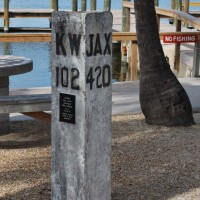On this Monday, March 14 edition of Sundial:
U.S. talks with Venezuela on oil
The Biden Administration is possibly looking at Venezuela for oil.
That comes as U.S. and international sanctions attempt to punish Russia for its invasion of Ukraine. Those sanctions include a ban on Russian oil imports.
You turn to WLRN for reporting you can trust and stories that move our South Florida community forward. Your support makes it possible. Please donate now. Thank you.
Venezuela, which was once an oil giant, doesn’t produce oil like it used to.
“I think PDVSA [Petroleum of Venezuela] in its day was the best run national oil company in the world,” said Edward Glab, the director of the global energy and sustainability forum at Florida International University. “Then, unfortunately, a so-called Marxist came into power and destroyed the industry by putting in his political hacks and featherbedding it and giving away oil to nations around the world.”
The U.S. talks with Venezuela are controversial. Nicolas Maduro’s regime has committed crimes against humanity, according to United Nations investigators. The U.S. doesn’t recognize him as the country’s leader — it recognizes opposition leader Juan Guaidó as the legitimate president since 2019.
The dialogue with the Maduro regime has not been received well by many, especially here in South Florida.
Glab said there could’ve been another option for the U.S. right in our own hemisphere — the Keystone XL Pipeline.
“In 2010, we had the opportunity when Obama was president and Hillary was secretary of state to launch the Keystone XL pipeline. If we had done that then, if people had accepted the solid argument that it was in our national interest, our national security, our economy to do so and had we done it, we would be getting 830,000 barrels a day more from Canada,” he said.
That pipeline was brought to a halt last year after President Joe Biden blocked a key permit. Environmental groups and Native American communities opposed the pipeline over concerns about the harm to wildlife in the area, air pollution, oil leaks and damage to sacred indigenous lands.
Listen to the full conversation below:

Cuban Family Reunification Program
Thousands of Cubans back on the communist island are trying to reconnect with their family in the U.S.
There’s a process for these folks and it’s called the Cuban Family Reunification Parole Program.
However, the program has been on hold ever since the U.S. Embassy in Havana was closed in 2017.
The U.S. government shut it down because of a strange illness that inflicted numerous employees of the embassy, known as "Havana Syndrome." To this day the U.S. is investigating but still cannot explain how diplomats became mysteriously sick. Now there’s a bipartisan push in Congress to get the reunification program back up and running. A similar effort failed in the House last year.
Reporter Nora Gamez Torres of the Miami Herald and El Nuevo Herald joined Sundial Monday to discuss the recent efforts to revive the program.
She said the U.S. Embassy in Havana will, for now, continue to process visa petitions in Guyana, which has been challenging for many Cubans to get to in order to participate in the program.
You can read more of Nora Gamez Torres' reporting, here.

The Overseas Railroad
We’re going back in time for a moment to the days of Henry Flagler. Imagine when a train still went all the way to Key West. Those views must’ve been incredible.
Then the Labor Day Hurricane in 1935 wiped out a lot of The Overseas Railroad. Some remnants remain along the island chain. The One Mile Marker was removed from the roadside recently and is being restored.
So, what's left of the Overseas Railway in the Keys?
There are lots of remnants of the railroad you can see and visit, writes WLRN’s Keys reporter Nan Klingener.
“The old bridges are the most obvious. Many of them have been incorporated into the Overseas Heritage Trail, a state park that links the Keys. Some of the bridges you can use as fishing piers, and you can cross most on foot or bicycle,” she adds.
Find more of Klingener’s reporting on this story here.




